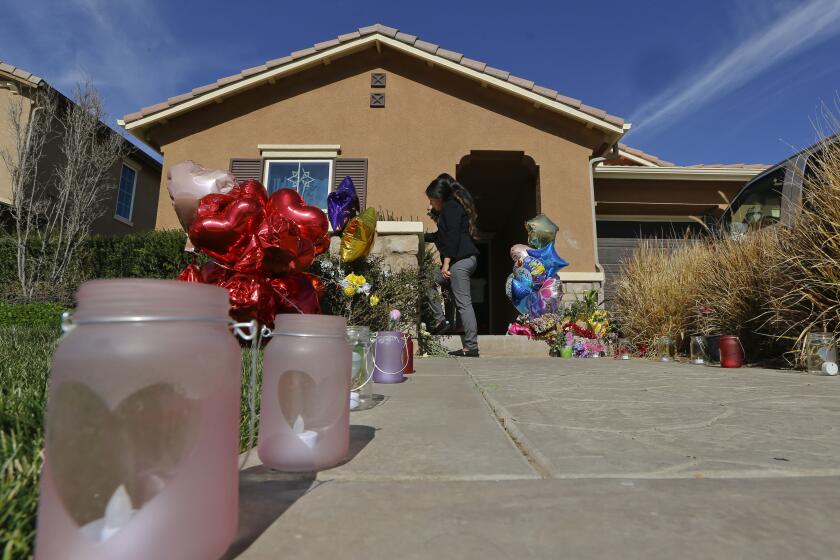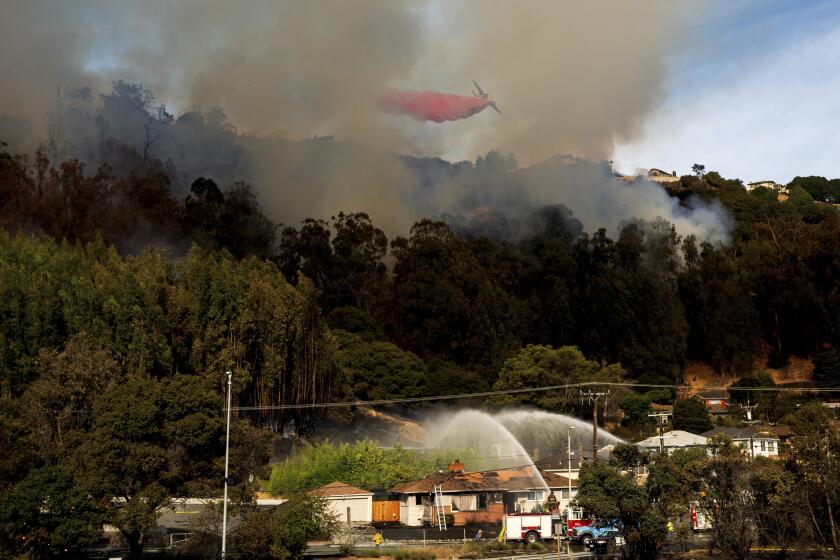Monterey Park Wants No More Rowdy Meetings
City Council meetings became so disorderly earlier this year that students in a high school civics class were discouraged by their teacher from attending, Councilwoman Pat Reichenberger says.
And, she says, when the sessions weren’t rowdy, they dragged on so long that elderly residents fell asleep waiting for the items of city business that concerned them.
Arrests, sergeants-at-arms escorting people out, council members shouting at spectators, spectators shouting back, catcalls and cheers became the rule rather than the exception.
One City Council candidate was arrested after he resisted orders from the mayor to leave the council chambers. At the same meeting, one council member called another candidate a racist. At other meetings, council members and candidates often exchanged bitter words.
The meetings, Reichenberger says, were “not very pleasant for me” or for “my colleagues . . . (and) the people watching on television and the people sitting in the audience and just the people hearing about them.”
The chaos subsided after the April 12 election, Reichenberger says, but she still wants to persuade her colleagues to institute procedures to encourage governmental order rather than chaos.
On at least four occasions, she has put an item on the agenda to discuss the rules under which meetings are run. Each time, she says, the council adjourned without reaching that item.
Now, however, Reichenberger has persuaded the council to hold a workshop at 6 p.m. June 1 to discuss the issue.
‘Professional Operation’
“I’m in full belief that we are going to be able to run a professional operation,” says Reichenberger, who once walked out of a meeting complaining of “electioneering” by fellow council members.
At last Monday’s council meeting, she detailed several of the areas she feels the council needs to address:
How many residents may address the council on any single issue.
How long a council member may talk on a particular subject.
How many council members must agree on an item before it can be placed on an agenda.
What rules members should follow when they are verbally attacked by residents during meetings.
One of her greatest concerns, Reichenberger says, is the “airing of dirty laundry.”
“I do not anticipate this in the next few years, but I want to protect against it,” she says. “I don’t think it’s moral, professional or ethical.”
Long Speeches
Another problem, Reichenberger says, is that council members will spend an hour or two discussing a topic, even before a motion is made, and then drop the issue because of lack of support for a motion or a second.
This happens often, she says, because any council member, without the support of the others, can place an item on the agenda.
Reichenberger suggests that it should take agreement by at least two council members to place an item on the agenda. “It would put the reins on just a wee bit,” she said.
Councilman Barry L. Hatch objects to the idea, but he acknowledges that steps must be taken to improve how items get onto the agenda and how council members and other city officials are notified of proposed topics.
At Monday’s meeting, Hatch cited problems with two potential agenda items he was proposing. Because of rumors about what he was doing, he said, “I just about got shot.”
Sign Ordinances
On one item, Hatch asked Acting City Manager David P. Bentz to investigate sign ordinances throughout the San Gabriel Valley. The councilman was unhappy about the proliferation of signs in Chinese characters. “All of the sudden (people were saying): ‘Hatch is going to climb up and rip off all the Chinese language,’ ” he said.
Hatch said all he wanted was for city officials to report on how other cities are regulating signs using foreign languages.
On the second item, Hatch asked city officials about anti-smoking ordinances in other communities. “I got phone calls, crying, tears from residents: ‘How could you possibly say we can’t smoke in City Hall?’ ” he said. “Who said anything about that?”
Hatch said he doesn’t know what kind of smoking ordinance he might propose.
A solution, Hatch said, might be to require council members to file written memos to their colleagues when they ask city staff to investigate potential agenda items. “That way, all my colleagues will be calm, there’ll be no high blood pressure and there will be no call to arms.”
‘Need to Do It’
Hatch says: “I’m very much for this workshop. We need to do it immediately.” Bentz says the present situation is “terrible” because the council hasn’t told him how to tell council members and city employees about agenda items other council members are proposing.
The way the council determines the order of its agenda items also needs to be improved, Reichenberger says. At one meeting, about 50 elderly residents came because of their interest in an item at the end of the agenda. “It was 11 or 12 o’clock, and they started sleeping in the front row.”
The council sometimes does juggle the agenda at the start of a meeting to accommodate groups that have come because of particular items.
Mayor Christopher F. Houseman suggested that the council consider scheduling regular sessions to set priorities on agenda items.
Reichenberger says she hopes that if the council develops more detailed procedures and at least follows Robert’s Rules of Order, the meetings will be better for everyone. “It’s embarrassing when the local government class isn’t allowed to attend our council meetings,” she says.
More to Read
Sign up for Essential California
The most important California stories and recommendations in your inbox every morning.
You may occasionally receive promotional content from the Los Angeles Times.










